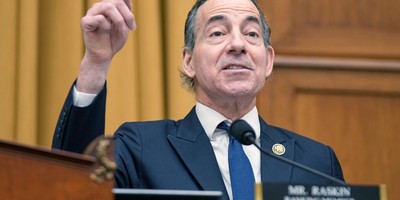Biofuels are one of the major reasons you and I are paying more for groceries these days. For most of us, it is just an inconvenience. For many around the world, however, it is a catastrophe. Last week, United Nations Special Investigator Jean Ziegler called the use of biofuels, such as ethanol, a “crime against a great part of humanity.”
In the past, global food crises were sparked by natural disasters and bad harvests. What makes this food crisis a crime against humanity is: We caused it. And like many man-made problems, this one can be traced to our false worldview.
Here in the United States, egg prices are up 35 percent; milk up 23 percent; and bread up 16. For most Americans, who on average spend 10 percent of their income on food, these increases squeeze our budgets.
But for the “great part of humanity” Ziegler talks about, it is a lot worse. In countries like Ethiopia and Bangladesh, people can spend 70 percent of their income on food; so even modest increases in food prices can impair their ability to feed their families. And price increases for the staples they depend on have not been modest: Wheat prices have doubled and corn prices quadrupled in the last year.
Rising food prices are causing social instability. According to the World Food Program, “33 countries in Asia and Africa face political instability as the urban poor struggle to feed their families”—which is why the president and Congress are talking now about increasing aid to these countries.
While the rise in food-staple prices has many causes, as Ziegler noted, one of them is definitely man-made: the use of cropland and food-staples to produce bio-fuels such as ethanol. He called “transforming hundreds and hundreds of thousands of tons” of foodstuffs into fuel “absolutely catastrophic for the hungry people.”
Recommended
Look at it this way: It takes 510 pounds of corn to make 13 gallons of ethanol; that amount could “feed a child in Zambia or Mexico for a year,” while it fuels your car only for a week!
Ziegler is not alone; the IMF (International Monetary Fund) has raised grave concerns, and Secretary of State Rice recently spoke of the “unintended consequence from the alternative fuels’ effort.”
What is maddening about this is that the biofuel effort is fueled by politicians handing out massive subsidies to the farm belt and pandering to glassy-eyed environmentalists. Every presidential hopeful who participated in the Iowa caucuses had to sing the praises of ethanol. That is why John McCain stayed away, because he opposes the subsidies.
Now, I am all for farmers making money on their crops. They deserve it. But no politician with a shred of integrity can deny that it is more important to feed a child in Zambia for a year than to feed your car for a week. And—as if I need to remind you—this is an election year, so ask your candidates where they stand on this tragic political folly. And call your members of Congress to tell them how you feel.
A properly informed worldview is the key here. Two non-Christian worldviews have merged to bring about this crisis: one that sees maintaining political power as an end in itself, and one that sees the environment as our chief concern, even at the expense of humans.
We Christians insist on the proper use of government: that is, to restrain evil and promote justice. And we believe in proper environmental stewardship. But we insist that people, especially the poor, must come first.

























Join the conversation as a VIP Member